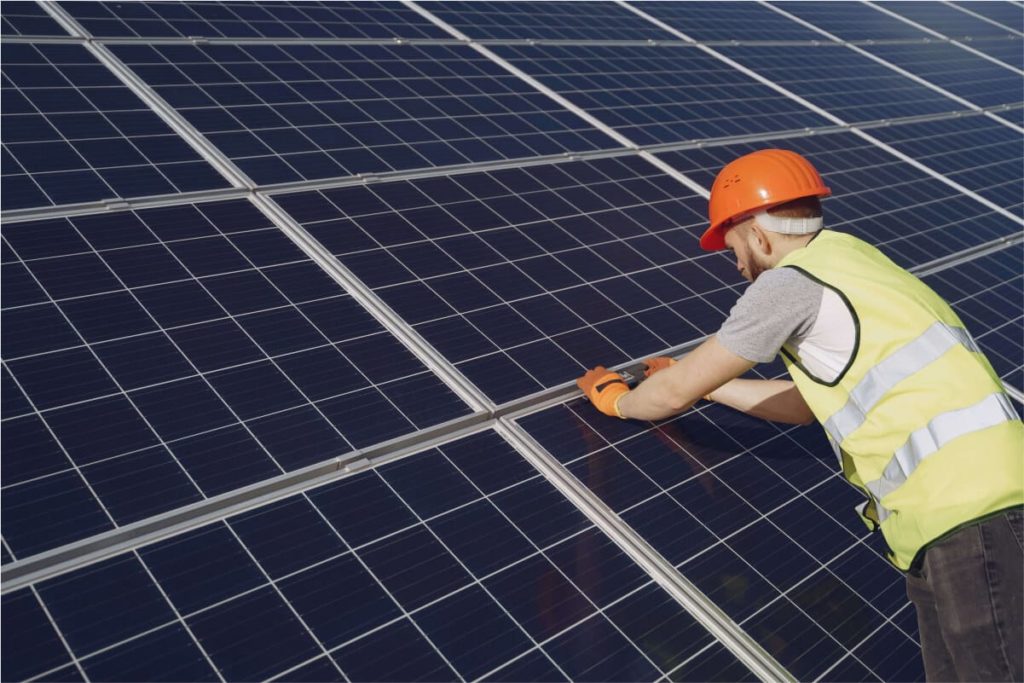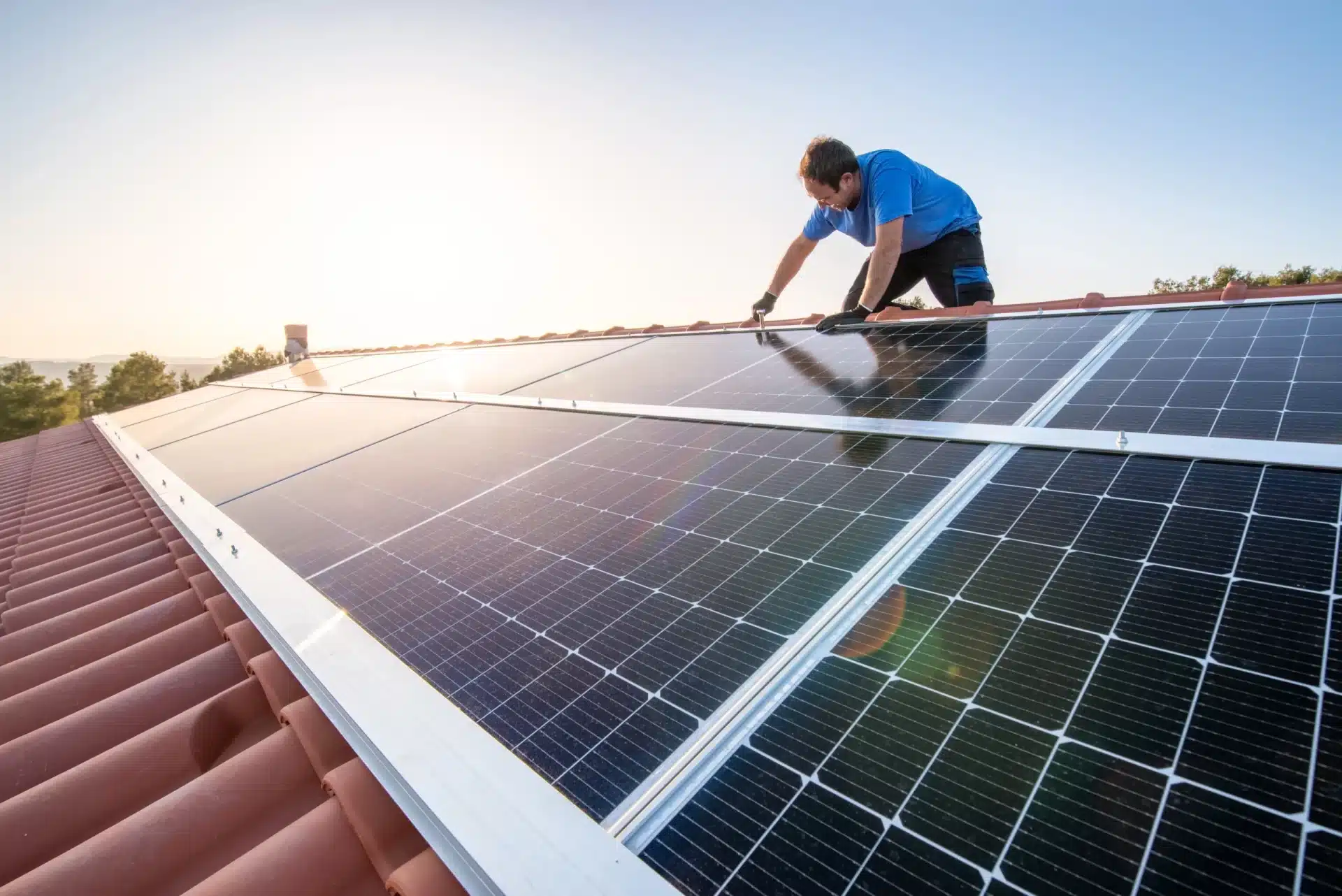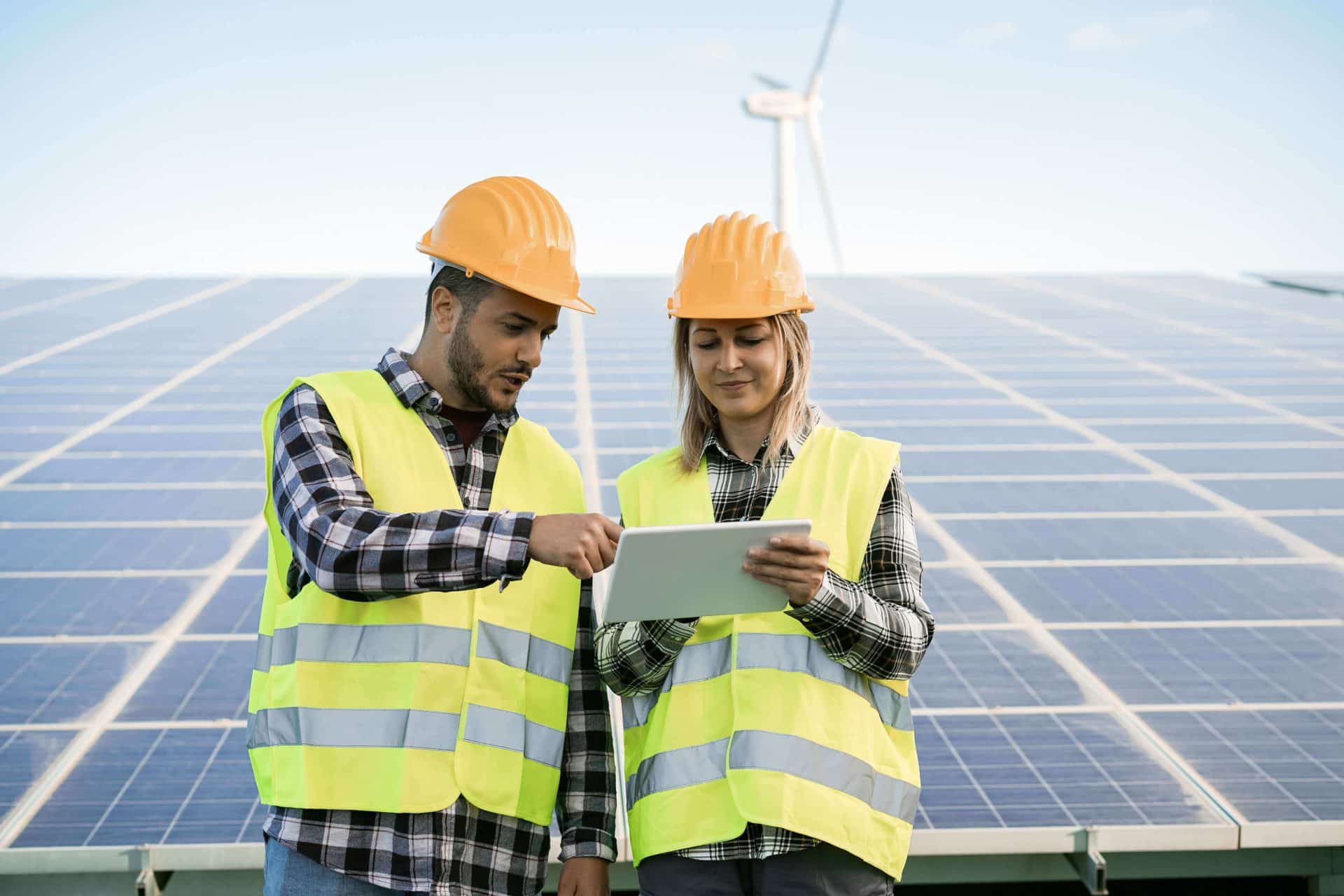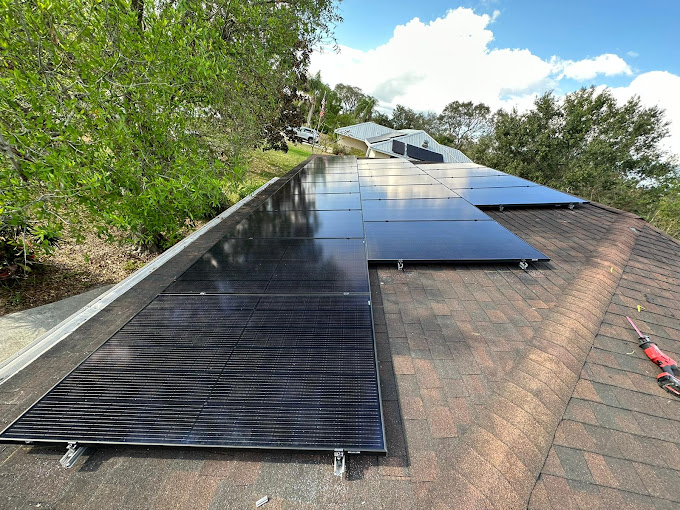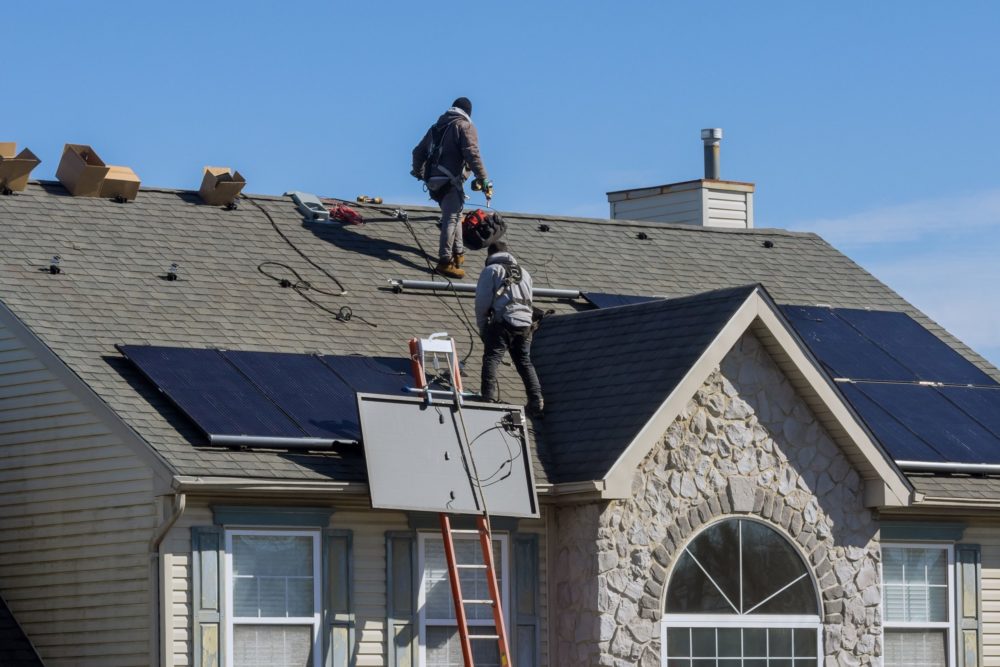Welcome to IntegriSolar!
Are you ready to harness the power of the sun? In this article, IntegriSolar, the premier solar installation company, explores key factors like roof orientation, condition, and available space. Here, we’ll also consider the local climate, energy consumption, and financial incentives. Additionally, we also discuss HOA restrictions, permits, and regulations. So, if you are curious about going solar, let’s dive in and see if your homes are up to the challenge.
Key Takeaways
- Roof orientation and condition are crucial factors in determining the efficiency and effectiveness of a solar system. Consulting with a reputable solar installation company can provide accurate assessments.
- Climate and weather conditions, such as long sunny days, extreme heat, heavy rainfall or snowfall, and strong winds or storms, should be considered for optimal solar panel performance and durability.
- Energy consumption and efficiency should be evaluated to maximize the benefits of solar installation. Upgrading to energy-efficient appliances, proper insulation and sealing, and behavioral changes can help reduce energy loss and consumption.
- Financial considerations and incentives, such as available financial incentives and rebates, financing options, potential savings on electricity bills, and government programs like the federal investment tax credit and net metering, should be explored to make an informed decision about solar installation.
Roof Orientation and Sun Exposure
IntegriSolar emphasizes considering the home’s roof orientation and sun exposure when selecting a solar installation. These factors play a crucial role in determining the efficiency and effectiveness of a solar system. Before choosing a solar installer or company to provide solar installation services, it is essential to assess the roof’s orientation and the amount of sunlight it receives throughout the day.
A south-facing roof is generally ideal for solar installations, as it receives maximum sunlight throughout the day. This orientation allows the solar panels to capture the most solar energy and generate the highest possible electricity output. However, east and west-facing roofs can also be suitable for solar installations, depending on the specific circumstances of our home.
In addition to roof orientation, one must also evaluate the roof’s sun exposure. Shade from nearby trees, buildings, or other objects can significantly impact the performance of our solar panels. It is crucial to ensure that the roof receives unobstructed sunlight for most of the day to optimize the solar system’s energy production.
For a precise evaluation of our roof’s suitability for solar installation, engaging with IntegriSolar, your trusted solar installation company, is recommended. Our skilled team possesses the expertise to accurately assess the orientation and sun exposure of our roof. Through a comprehensive analysis, IntegriSolar can offer valuable insights and tailored recommendations, guiding you toward your home’s optimal solar installation solution. Rely on IntegriSolar’s proficiency to ensure a thorough assessment that aligns with your energy needs, environmental goals, and property’s unique characteristics.
Roof Age and Condition
After evaluating the home’s roof orientation and sun exposure, our team at IntegriSolar assesses the roof’s age and condition to determine its suitability for solar installation. The age and condition of the roof are crucial factors in determining whether it can support the weight and installation of solar panels. A roof in poor condition may require repairs or even replacement before solar panels can be installed.
Firstly, we consider the age of the roof. A general rule of thumb is that solar panels have a lifespan of about 25 to 30 years. Therefore, it is vital to ensure that the roof has a similar lifespan or is in good enough condition to last for the lifespan of the solar panels. If the roof is nearing the end of its life, it may be necessary to replace it before installing solar panels. This will ensure the stability and safety of the solar installation and prevent any potential damage to the panels caused by a failing roof.
Secondly, the condition of the roof is equally important. At IntegriSolar, we assess whether there are any existing issues, such as leaks, damage, or structural problems. A roof that is in good condition will provide a solid foundation for the solar panels and minimize the risk of any future issues. If there are any existing problems, they should be repaired before installing solar panels to avoid any complications or further damage.
Available Roof Space
Now, the next task is to assess the available roof space for solar installation to determine the potential size and layout of the solar panel system. When considering the available roof space, there are a few key factors to take into account:
Roof orientation: The ideal roof faces south and receives the most sunlight throughout the day. However, east and west-facing roofs can also be viable options, although they may generate slightly less energy.
Roof pitch: The angle of your roof can also impact the efficiency of your solar panels. A pitch between 30 and 45 degrees is generally optimal, allowing maximum sunlight exposure.
Shade coverage: It is crucial to assess the amount of shade that falls on your roof throughout the day. Trees, buildings, or other obstructions can significantly reduce the sunlight reaching your panels, affecting their overall performance.
Evaluating the available roof space is a crucial step in maximizing the benefits of solar energy. This assessment, offered as part of IntegriSolar’s comprehensive solar installation services, helps determine the optimal placement and potential capacity of solar panels on your roof. A larger roof area translates to installing more panels, enhancing the potential for generating clean energy.
Even if your roof space is limited, IntegriSolar specializes in designing and installing efficient solar panel systems tailored to your specific needs. Our solar installation services ensure that, regardless of space constraints, you can still benefit from a thoughtfully designed system capable of offsetting a significant portion of your electricity consumption. Trust IntegriSolar for expert guidance in optimizing your roof space for sustainable energy solutions.
Local Climate and Weather Patterns
Our IntegriSolar team assesses the feasibility of solar installation on your home and considers the local climate and weather patterns. The amount of sunlight your area receives throughout the year will directly impact the efficiency of your solar panels. Regions that experience long, sunny days will generally generate more solar energy than areas with frequent cloud cover or limited sunlight.
When evaluating the local climate, it is crucial to consider the average annual temperature and precipitation levels. Extreme heat can reduce the efficiency of solar panels, causing them to produce less energy. Similarly, heavy rainfall or snowfall can affect the performance of solar panels if they are not properly installed or maintained. Understanding the specific weather patterns in your area will help determine if solar installation is a viable option for your home.
When evaluating the viability of solar panel installation, it’s essential to factor in the environmental conditions specific to your region. IntegriSolar, the leading solar installation company, considers factors like strong winds or storms that might prevail in your area. High winds can threaten solar panels, potentially causing damage or dislodging them from your roof.
Ensuring the resilience of both your roof and solar panel installation is paramount. IntegriSolar specializes in robust installations designed to withstand various weather conditions. Our expert team may recommend preventive measures in regions prone to high winds, such as installing wind deflectors or reinforcing mounting systems. Trust IntegriSolar to provide comprehensive solutions, ensuring the durability and longevity of your solar panel investment in the face of adverse weather conditions.
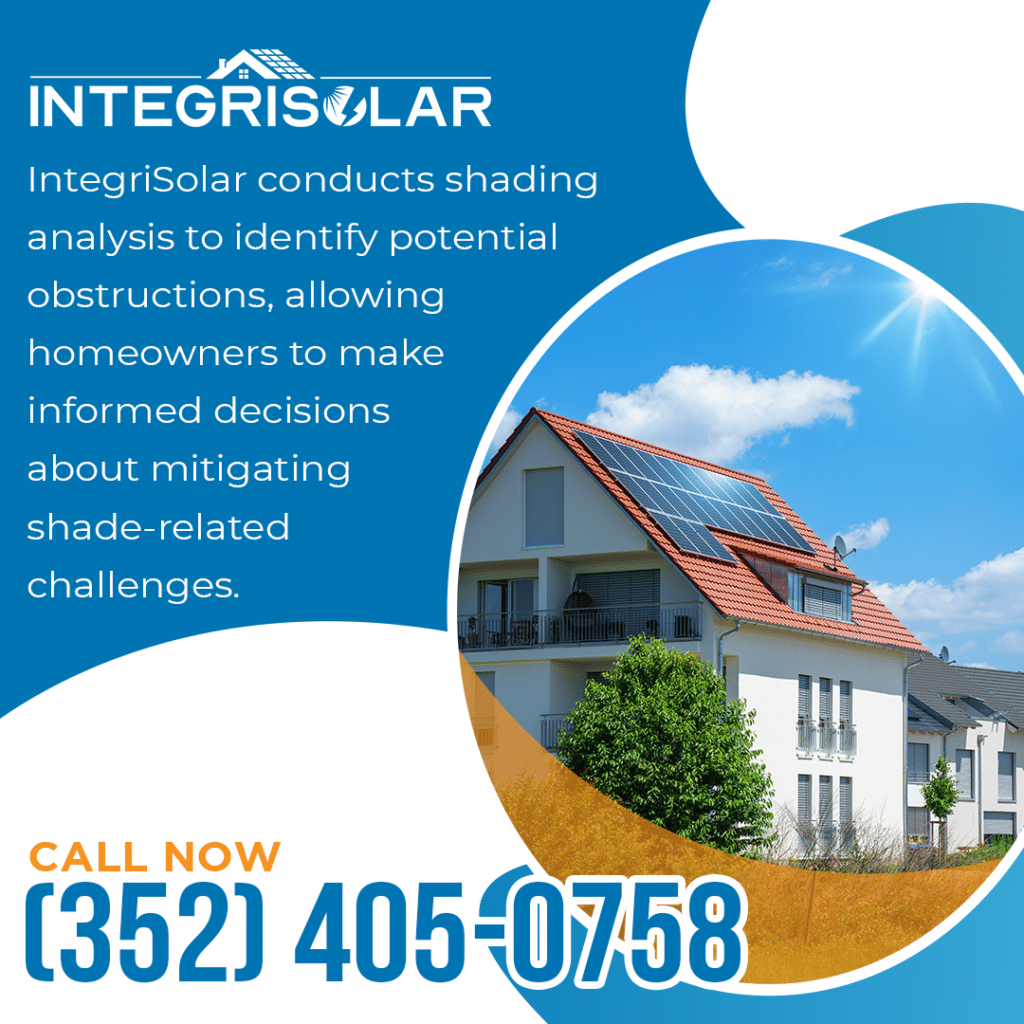
Energy Consumption and Usage
How efficiently do we use energy in our homes? This is an important question to consider when thinking about solar installation. To help paint a picture of energy consumption and usage, here are three key points to keep in mind:
Appliance Efficiency: Take a moment to evaluate your appliances’ efficiency. Are they energy-efficient models? Older appliances use more energy, so an upgrade might be worth considering. Look for appliances with the Energy Star label, as these meet strict energy efficiency guidelines.
Insulation and Sealing: Another factor to consider is the insulation and sealing of your home. Proper insulation helps to maintain comfortable temperatures while reducing energy loss. Check for gaps and cracks around windows, doors, and electrical outlets, as these can contribute to energy waste. Sealing these areas can make a significant difference in your energy consumption.
Behavioral Changes: Habits and behaviors can significantly impact energy usage. Simple actions like turning off lights when leaving a room, unplugging electronics when not in use, and using natural light during the day can reduce energy consumption. It’s also worth considering adjusting thermostat settings and being mindful of water usage.
Financial Considerations and Incentives
When preparing your home for solar installation, one crucial aspect is the financial considerations and incentives available. Going solar can be a significant investment and provide long-term financial benefits. One of the main financial considerations is the cost of installing solar panels. This cost can vary depending on factors such as the size of your home, the amount of electricity you use, and the type of solar panels you choose. It’s important to carefully evaluate your budget and determine if the upfront solar installation cost aligns with your financial goals.
Fortunately, there are several incentives and financial assistance options available to help offset the cost of going solar. One common incentive is the federal investment tax credit (ITC). This allows homeowners to claim a percentage of the installation cost as a tax credit, reducing the overall cost of going solar. In August 2022, Congress approved an ITC extension, increasing the tax credit to 30% for installations carried out between 2022 and 2032. (Systems installed on or before December 31, 2019, were also entitled to a 30% tax credit.) The credit will subsequently reduce to 26% for installations in 2033 and further decrease to 22% for installations in 2034. Additionally, many states and local governments offer their own financial incentives, such as rebates or grants, to encourage homeowners to install solar panels.
Another financial consideration is the potential savings on your energy bills. By generating your own electricity through solar panels, you can reduce or even eliminate your reliance on traditional energy sources. This can lead to significant savings over time, especially as energy costs continue to rise. Additionally, utility companies offer net metering programs, which allow homeowners to earn credits for excess electricity generated by their solar panels. These credits can then be used to offset future energy bills.
Homeowner Association (HOA) Restrictions
It is good to check if your homeowner association (HOA) has any restrictions on solar installation for homes in the locality. This proactive approach ensures a smooth and compliant process with your HOA regulations. As a reputable solar installation company, IntegriSolar is committed to assisting you in navigating these considerations seamlessly. Here are some key points to consider:
HOA guidelines: The first step is to review the HOA guidelines and bylaws to see if there are any specific provisions related to solar panel installations. Some HOAs may have restrictions on the type, size, or placement of solar panels. Understanding these guidelines is crucial to ensure compliance and avoid potential conflicts.
Application process: Many HOAs require homeowners to submit an application for any modifications to their property, including solar installations. This process may involve seeking approval from the architectural or design review committee. We must familiarize ourselves with the application process and any associated fees or documentation requirements.
Aesthetics and appearance: HOAs often have guidelines to maintain the neighborhood’s overall aesthetics. They may have specific requirements for the color, placement, or visibility of solar panels. Understanding these aesthetic considerations will help you choose the most suitable solar panel design that meets your energy needs and the HOA’s requirements.
Permits and Local Regulations
Now that we have considered the homeowner association (HOA) restrictions, we must navigate the next step in the solar installation process: obtaining permits and understanding local regulations. Before installing solar panels on your home, obtaining the necessary permits and approvals from your local government is crucial. These permits ensure your solar installation meets all safety and building code requirements.
To begin the permit process, you must typically apply to your local building department or planning office. This application will require detailed information about your solar project, including the size and location of the solar panels and any additional electrical work that may be required. You may also be required to provide engineering plans or documentation from a licensed professional.
In addition to permits, it is essential to understand and comply with local regulations regarding solar installations. These regulations can vary from city to city and may include restrictions on the size, placement, and appearance of solar panels. Some areas may also have specific rules for connecting your solar panels to the grid or obtaining interconnection agreements with your utility company.
Collaborating with an experienced solar installation company like IntegriSolar is recommended for a hassle-free installation experience. Our team is well-versed in the local permitting and regulatory requirements, ensuring a seamless process. By working closely with us, you can receive expert guidance throughout the installation, assistance with essential paperwork, and the assurance that your solar project complies with all local regulations.
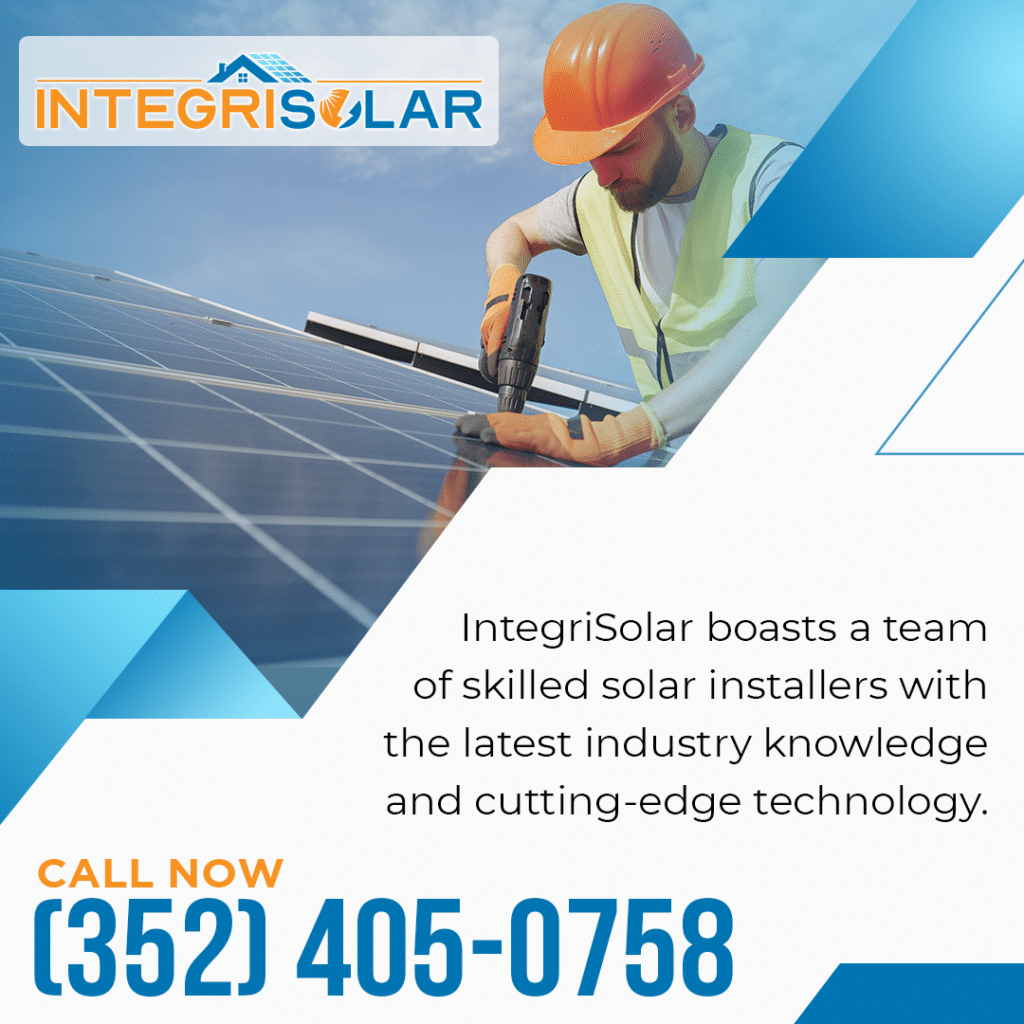
Frequently Asked Questions
I’m interested in transitioning to solar energy for my home. Can solar panels be installed on my residential property with IntegriSolar?
Absolutely! IntegriSolar specializes in residential solar installation services. We assess the suitability of your property, considering factors like roof orientation, sun exposure, and available space. Our experienced team guides you through the process, from evaluating your energy needs to obtaining necessary permits and adhering to local regulations. By choosing IntegriSolar, you can confidently embark on a seamless and sustainable transition to solar energy for your home.
How Will Solar Panels Affect the Resale Value of My Home?
Choosing IntegriSolar as your trusted solar installer can significantly enhance the resale value of your home. Numerous studies indicate that homes equipped with solar panels command higher prices and sell more swiftly than their non-solar counterparts. Prospective buyers are increasingly drawn to properties featuring renewable energy solutions, making solar panels a compelling selling point. By opting for solar installation with IntegriSolar, you showcase a commitment to sustainability while potentially enjoying long-term cost savings on energy bills, making your home an even more attractive and eco-friendly investment.
Can Solar Panels Be Installed on a Flat Roof?
Certainly, with IntegriSolar, your reliable solar installer, rest assured that solar panels can be installed on flat roofs. Their versatility allows for mounting on various roof types, including flat surfaces. However, it is crucial to engage with our professional team to assess the feasibility and ensure the suitability of your roof for solar installation. Factors such as the structural integrity of the roof, its orientation, and potential shading should be carefully evaluated. In summary, flat roofs can be an excellent option for harnessing clean and renewable energy through solar panels, and with IntegriSolar’s expertise, you can confidently explore this sustainable energy solution.
What Steps Should I Take to Maintain and Clean My Solar Panels?
To maintain and clean your solar panels effectively, follow these steps recommended by IntegriSolar, your local solar installer. Regular cleaning is crucial for maximizing panel efficiency. Begin by inspecting the surface for debris or dust and gently remove it using a soft brush or cloth. Additionally, conduct thorough checks for any damage or loose connections. To ensure optimal performance, it is advisable to schedule professional maintenance at least once a year. This comprehensive approach to solar panel care helps guarantee long-lasting efficiency and trouble-free operation.
Will Installing Solar Panels Affect My Homeowner’s Insurance Rates?
When contemplating the installation of solar panels, it’s crucial to be aware that it might influence your homeowner’s insurance rates. Connect with your insurance provider to assess potential adjustments and gather specific information about rate changes. While there could be a slight increase in insurance rates, it’s important to note that the long-term savings on energy bills from solar panels often outweigh any additional insurance costs. By consulting with your insurance provider and leveraging the expertise of IntegriSolar, your dedicated solar installer, you can gain valuable insights into the financial implications and make informed decisions about seamlessly incorporating solar energy into your home.
Conclusion
In conclusion, when contemplating the installation of solar panels through IntegriSolar’s expert solar installation services, it is crucial to evaluate various factors. Considerations such as the orientation and sun exposure of your roof, age, and condition, available space, local climate and weather patterns, energy consumption and usage, financial considerations, incentives, homeowner association restrictions, permits, and local regulations all play a significant role. By carefully assessing these factors, facilitated by the guidance of our experienced solar installation company in Ocala, FL, IntegriSolar, you can determine the readiness of your home for solar and make a well-informed decision tailored to your specific needs and circumstances.

